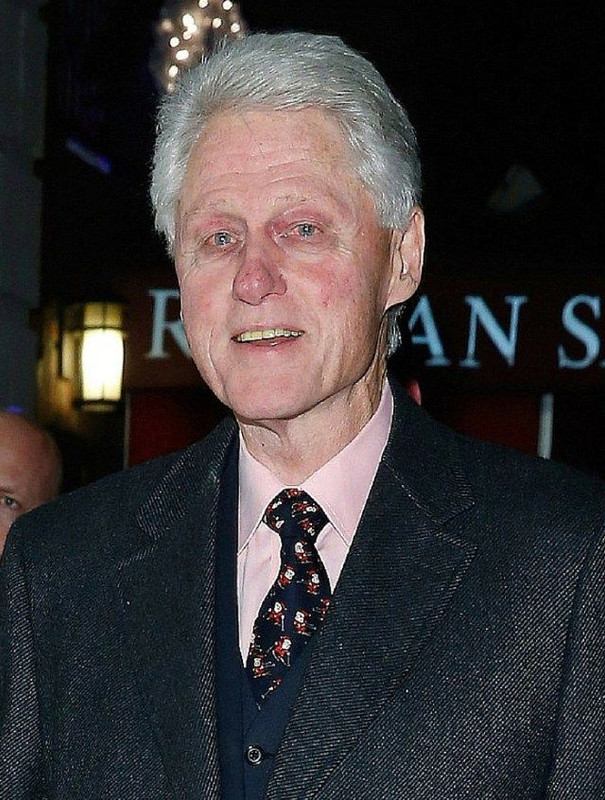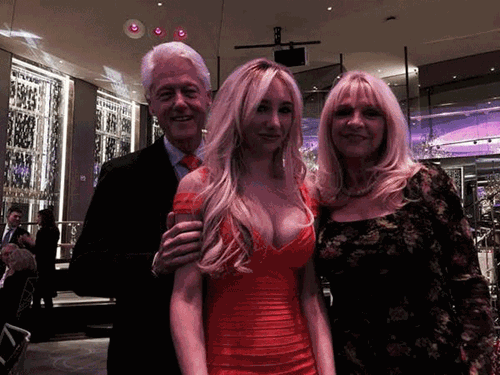Please use the sharing tools found via the share button at the top or side of articles. Copying articles to share with others is a breach of FT.com T&Cs and Copyright Policy. Email
licensing@ft.com to buy additional rights. Subscribers may share up to 10 or 20 articles per month using the gift article service. More information can be found at
https://www.ft.com/tour.
https://www.ft.com/content/edb346ec-fd3 ... d59aace167
US says China WTO membership was a mistake
Trump administration reverses two decades of trade policy towards 2001 accession
© AFP
US says China WTO membership was a mistake on x (opens in a new window)
US says China WTO membership was a mistake on facebook (opens in a new window)
US says China WTO membership was a mistake on linkedin (opens in a new window)
Save
current progress 100%
Shawn Donnan in Washington JANUARY 19 2018
69
Print this page
Unlock the US Election Countdown newsletter for free
The stories that matter on money and politics in the race for the White House
The Trump administration has said that allowing China to join the World Trade Organization was a mistake and accused Beijing of moving further away from becoming a market economy.
The statement in a report by the office of Robert Lighthizer, the US trade representative, is a sign of rising trade tensions between the world’s two largest economies.
It is also a reversal of more than two decades of policy in Washington towards China’s 2001 accession to the WTO. Both Democratic and Republican policymakers have long argued that China’s membership of the organisation has been a way to bring Beijing into the global fold and avoid potential trade wars.
Mr Lighthizer said China, together with Russia, was undermining the WTO, which had always been envisioned as a club for market economies eager to trade with others.
“The global trading system is threatened by major economies who do not intend to open their markets to trade and participate fairly,” he said, calling China’s actions “contrary to the fundamental principles of the WTO”.
His office’s first annual report to Congress on China’s behaviour as a WTO member described US backing for the Asian power’s accession as a mistake because of the terms that were agreed to and how Beijing had repeatedly failed to live up to promises to previous administrations.
“Given these facts, it seems clear that the United States erred in supporting China’s entry into the WTO on terms that have proven to be ineffective in securing China’s embrace of an open, market-oriented trade regime,” the report said.
Mr Lighthizer vowed to use new unilateral tools outside the WTO to try to force a change in Beijing’s behaviour. That foreshadows moves in the weeks to come that some analysts fear could set up tit-for-tat trade actions by Beijing and Washington that could devolve into a destructive trade war.
A senior administration official said on Friday that while the US was prepared to continue using the WTO to fight its battles with China, it was also increasingly convinced that many of those actions were futile and that Washington was better served acting unilaterally in certain cases.
President Donald Trump’s administration is considering a number of actions aimed at China with much of the focus on an investigation launched last year into Beijing’s practice of forcing foreign firms to hand over important technologies in order to do business.
[Prior administrations’] strategy was to use carrots and sticks to encourage Beijing to continue its reform. Thus far, the Trump administration has only thought about the sticks
Chad Bown, trade adviser to former president Barack Obama
Mr Trump has said he will discuss his trade plans and how to deal with China in his State of the Union address at the end of this month.
A senior White House official said addressing “systemic” issues in China such as its industrial policy and intellectual property regime that were hurting the US economy was set to be one of the main themes of the administration’s work this year.
The Trump administration, the White House official said, was also eager to force reform at a WTO that it sees as dysfunctional.
Edward Alden, a senior fellow at the Council on Foreign Relations, said the move to call US backing for China’s WTO accession a mistake amounted to an “extraordinary statement” that was “at odds with the convictions of senior US officials of both parties over at least two decades”.
When it negotiated Beijing’s accession “the Clinton administration was convinced that letting China into the WTO was of world historical importance — not just recognising China’s economic rise but trying to give it a stake in the current system and lessening the likelihood of future conflict, Mr Alden said.
Chad Bown, a trade adviser to former president Barack Obama, said the latest move pointed to how the Trump administration seemed intent on a trade war with Beijing.
“While prior administrations were equally concerned with China’s failure to transform into a western-style market economy, their strategy was to use carrots and sticks to encourage Beijing to continue its reform,” he said. “Thus far, the Trump administration has only thought about the sticks.”








